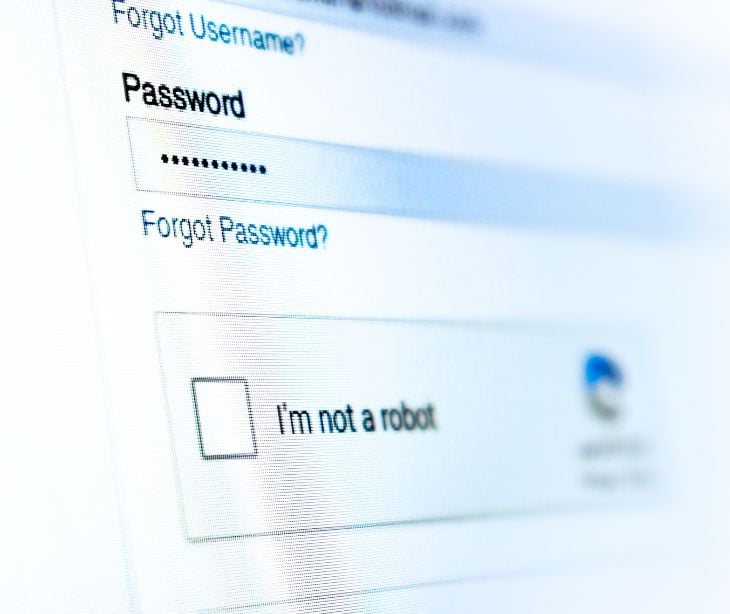
Computer viruses are a specific type of malware that spreads between computers and wreaks havoc on data and software. They are designed to disrupt systems, cause operational issues, and result in data loss and leakage. Unlike other types of malware, computer viruses attach themselves to executable host files, which allows their viral codes to execute when the file is opened. From there, the virus spreads through networks, drives, file-sharing programs, or infected email attachments.
Go deeper:
Common signs of computer virus infection
Speed of system
If you notice that your computer is running slower than usual, including slow application response and decreased internet speed, it may indicate the presence of a virus.
Pop-up windows
Unwanted pop-up windows appearing on your computer or web browser are another telltale sign of a computer virus. These pop-ups are often associated with malware, viruses, or spyware that have infected your device.
Programs self-executing
When computer programs unexpectedly close by themselves, it is highly likely that your software has been infected with a virus or malware. Another indicator of a virus is when applications fail to load when selected from the start menu or desktop icon.
Accounts being logged out
Some viruses specifically target certain applications, causing them to crash or force automatic logouts from the service. If you find yourself frequently logged out of your accounts without initiating the action, it could be a sign of a computer virus.
Crashing of the device
System crashes and unexpected computer shutdowns are common indicators of a virus infection. Computer viruses can cause various abnormal behaviors, such as files opening by themselves, unusual error messages, or random key presses.
Mass emails being sent from your email account
Computer viruses are often spread through email. Hackers can use compromised email accounts to spread malware and carry out broader cyberattacks.
Changes to your homepage
Any unexpected changes to your computer, such as alterations to your system's homepage or updates to browser settings, can indicate a computer virus infection. Viruses often manipulate these settings to redirect users to malicious websites or execute harmful actions.
How computer viruses attack and spread
In the early days of computers, viruses primarily spread through floppy disks. However, with the advancement of technology, viruses now commonly multiply through the internet and various other means. Computer viruses can be transmitted through email attachments, hijacked email software, infected code, compromised application stores, and infected code repositories.
Read also:
Effective measures to protect your device
Protecting your device from computer viruses requires implementing effective security measures. By following these recommendations, you can reduce the risk of virus infections:
Use a trusted antivirus product
Antivirus software scans your system regularly, identifies and blocks malware, and provides real-time protection against potential threats. Ensure your antivirus software is from a reputable provider and update it for optimal effectiveness.
Avoid clicking pop-up advertisements
Clicking on pop-ups can lead to unintentionally downloading viruses onto your computer. Avoid clicking on any suspicious or unsolicited pop-up advertisements.
Scan your email attachments
To protect your device, be cautious when opening email attachments, especially from unknown or untrusted sources. Use antivirus software to scan email attachments for potential viruses before opening them.
Be cautious of downloads
File-sharing programs, particularly unofficial sites, are often exploited by attackers to spread computer viruses. Avoid downloading applications, games, or software from untrusted sources to protect your device.
FAQs
How many computer viruses are there?
There are currently over 10,000 known computer viruses worldwide.
How do I know if my computer has a virus?
If your computer is loading slowly, deleting files, running suspicious programs, or filled with annoying on-screen pop-ups, you might have a virus.
Why did my computer get a virus?
Many viruses can get on the system when the computer user clicks on an unsafe link. But other viruses might enter the system from a legitimate download.
In the news
In a rare arrest involving generative AI technology, Tokyo's Metropolitan Police Department apprehended Ryuki Hayashi on May 28 for allegedly creating a computer virus directed at potential ransomware threats to businesses. Using freely available AI programs accessed from his home in Kawasaki, Hayashi, 25, developed malicious source codes designed to encrypt data and extort money from companies. Admitting to his actions, Hayashi stated, "I thought generative AI could do anything," expressing his intent to create ransomware for financial gain. Despite his efforts, no reported damage resulted from his activities. The incident indicates growing concerns over the misuse of AI technologies, prompting regulatory efforts worldwide, including the recent passage of the European Union's Artificial Intelligence Act focused on mitigating such risks.
FAQs
What are computer viruses and how do they relate to healthcare security?
Computer viruses are malicious software programs designed to replicate and spread, often causing damage to systems, data corruption, or unauthorized access. In healthcare, computer viruses can compromise patient information, disrupt operations, and lead to unauthorized access to protected health information (PHI).
Why are computer viruses a concern for HIPAA compliance in healthcare settings?
Computer viruses are a concern because they can lead to unauthorized access to PHI, data breaches, and operational disruptions. Successful virus infections can result in HIPAA violations, financial penalties, and damage to the organization’s reputation for failing to safeguard patient information.
What are the potential risks associated with computer viruses under HIPAA?
Potential risks of computer viruses include:
- Data breaches: Unauthorized access to and theft of patient records and medical data.
- Data corruption: Loss or alteration of critical healthcare information.
- Service disruption: Interruption of healthcare services and access to medical systems.
- Financial losses: Costs associated with breach remediation, legal penalties, and potential recovery of lost data.
How can healthcare facilities prevent and mitigate computer viruses to maintain HIPAA compliance?
Healthcare facilities can prevent and mitigate computer viruses by implementing cybersecurity measures, including:
- Antivirus software: Installing and regularly updating antivirus software on all devices.
- Regular updates: Ensuring all systems, software, and devices are kept up to date with the latest security patches.
- Email filtering: Implementing email filtering solutions to block malicious attachments and links.
- User training: Educating staff on recognizing and avoiding phishing emails and suspicious downloads.
- Network security: Implementing firewalls, intrusion detection/prevention systems (IDS/IPS), and network segmentation to limit the spread of viruses.
Subscribe to Paubox Weekly
Every Friday we bring you the most important news from Paubox. Our aim is to make you smarter, faster.





